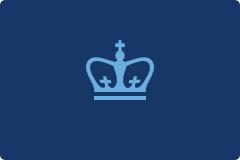


Teaching computer science to students not much younger than he, Jonathan Galsurkar had to learn to command the classroom. Now it’s his turn to sit back and listen.
Galsurkar starts Columbia Engineering’s Master’s in Data Science program this fall with the help of a $25,000 Monsanto scholarship. He will study part-time while working as an adjunct professor at CUNY’s Hunter College and a software developer at AlphaRidge, a health-tech company in New York City.
A defining moment for Galsurkar came when his parents, Israeli immigrants via India and the Ukraine, bought their first computer. He was six. Suddenly he could speak with distant relatives, and, as he grew older, experiment with ideas for starting his own business.
In college, at Hunter, he and his friends at Hunter built a website for their classmates to trade items, including textbooks. They called their site higgli, a variation on haggle, and even made a promotional video on YouTube. But it never launched. Like the engineers from Silicon Valley’s PiedPiper, they had forgotten about marketing.
“Any idea I have now I’m thinking ‘How do I promote this?’ Who do I talk to,’” he said.
In a later project, for his college capstone, Galsurkar and three classmates developed an app called Gathr for rounding up people for a game of basketball or a networking event. “Most of those people would initially be strangers and hopefully turn into friends by the end,” he explains. The team is now rebuilding their app for the Android operating system.
Galsurkar says he chose Columbia over other data science programs, including NYU and Stanford, in part for the exposure he would get to a range of data science applications, from cybersecurity to smart cities to medical informatics.
He was exposed to the latter during a summer fellowship at the University of Southern California where he helped develop tools for mining patient health records to recommend personalized treatments for critically ill children. “I realized that data science could be creatively used to solve life-threatening problems,” he said.
His job teaching classes on computer science and programming at Hunter evolved from his success as a paid tutor and volunteer at the nonprofit, Coding4Success, that teaches computer science skills to low-income minority students.
“I like teaching because I understand what the students are struggling with,” he said. “When they can’t grasp a concept I relate it to a real-world topic and give lots of examples. Later, I have them explain the topic to me to solidify their knowledge.”
For fun, he likes to swim, snowboard, play guitar and travel—he was hooked after a trip to Croatia with his mom when he was 12. To limit his time in front of the computer he recently picked up kickboxing.